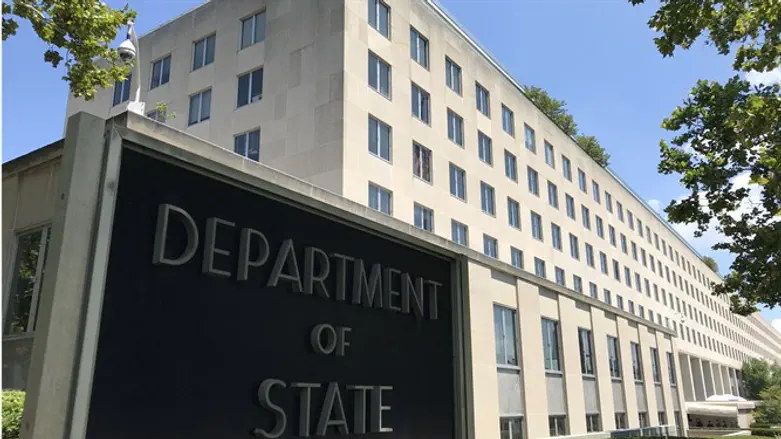
State Department spokeswoman Morgan Ortagus said in a briefing with Israeli journalists on Friday that if Israel applies sovereignty over Judea and Samaria, the move should be part of discussions between Israelis and Palestinian Arabs on fulfilling US President Donald Trump’s peace plan.
“We think these discussions should be part of the peace process, part of discussions between the Israelis and the Palestinians,” Ortagus said.
“We really think annexation should be part of a peace process where Palestinians should have a say,” she added.
Her comments followed a warning by King Abdullah II of Jordan, who said in an interview with the German Der Spiegel that if Israel applies sovereignty to parts of Judea and Samaria this summer, it will place the Jewish state on a collision course with Jordan.
“Leaders who advocate a one-state solution do not understand what that would mean. What would happen if the Palestinian Authority collapses? There would be more chaos and extremism in the region. If Israel really annexed the West Bank valley in July, it would lead to a massive conflict with the Hashemite Kingdom of Jordan,” he said.
Asked about King Abdullah’s comments, Ortagus said that the US appreciates the peace agreement between Israel and Jordan and wants to strengthen the relationship between the two countries.
"We heard what King Abdullah said about annexation and therefore we think we should go back to the Trump plan– and bring all parties back to the negotiating table based on the peace plan. And we're going to push for that to happen," she said.
In the coalition agreement inked between Prime Minister Binyamin Netanyahu and Blue and White chairman Benny Gantz, the government will be free to promote the application of Israeli sovereignty in Judea and Samaria after July 1.
Last week, US Ambassador to Israel David Friedman laid out the conditions for US recognition of Israeli sovereignty in Judea and Samaria, saying that Israel must wait for the completion of the mapping process before applying sovereignty, to ensure that only areas designated to Israel under the Trump administration peace plan be included.
In addition, Friedman said Israel must leave the door open to final status talks with the Palestinian Authority for a period of four years, and must not expand any of the 15 Israeli towns outside of the major blocs in Judea and Samaria for that four-year period.
US Secretary of State Mike Pompeo, who visited Israel this week, was non-committal on the timetable for sovereignty in an interview published in the Israel Hayom newspaper, saying that the decision to apply sovereignty is Israel’s to make.
(Arutz Sheva’s North American desk is keeping you updated until the start of Shabbat in New York. The time posted automatically on all Arutz Sheva articles, however, is Israeli time.)
